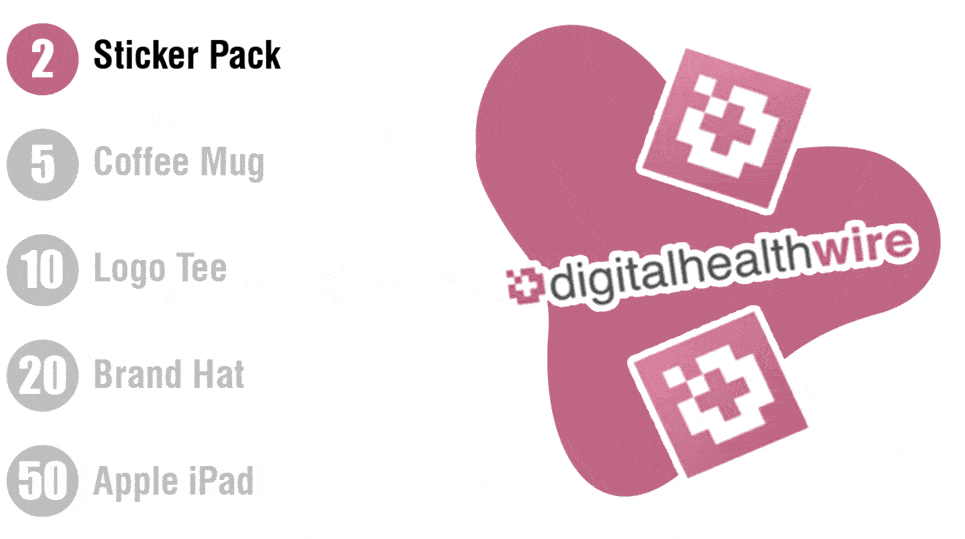|
DispatchHealth Lands $330M | Notable State of Automation
November 21, 2022
|
|
|

|
|
Together with
|

|
|
|
“What happens when a unicorn has a down-round? Is it now a horse? Does it have its horn removed?”
|
|
Wardell Advisors Managing Partner Steven Wardell
|
|
|
Happy Thanksgiving! We’re super thankful to all of our readers and sponsors that make this publication possible, and we’ll be back with our next issue after the holiday on November 28th.
|
|

|
|
It looks like 2022 isn’t finished with the megarounds quite yet, with DispatchHealth hauling in $330M in a mix of debt and equity funding to build out its suite of in-home services.
DispatchHealth launched in 2013 to bring urgent care into patient homes, but has since expanded its offerings to cover a wide range of high-acuity needs.
- The company partners with health systems, payors, and employers to provide in-home resources that help keep patients out of the hospital, such as mobile medical teams and Advanced Care hospital-at-home solutions.
- These services are integrated within its Last Mile Care Technology Platform, which tracks care patterns to optimize utilization, forecast equipment requirements, and triage patients to outside resources when necessary.
The latest round lifts DispatchHealth’s total funding to over $730M as it shifts its focus to building out its high-acuity ecosystem in the 50+ markets it already serves – reportedly covering 75% of Medicare Advantage members in the US.
- It’s easy to imagine that DispatchHealth is probably high on the list of acquisition targets for companies like UnitedHealth Group or CVS that are actively looking to round out their care delivery strategies with in-home assets.
- That makes it interesting to see that UHG subsidiary Optum Ventures led the recent funding, with Humana and Blue Shield of California also participating.
The Takeaway
Against a backdrop of economic uncertainty and a slowdown in private funding, DispatchHealth’s nine-figure raise shows that investors still have an appetite for startups with a solid track record of improving outcomes. We’ve been covering plenty of stories about hospital overcrowding and struggling margins, and DispatchHealth is making it clear that it believes the home is the right setting to tackle both issues at the same time.
|




|
|
Prescription Assistance Made Easy
Synapse Medicine’s quick-deploy Prescription Assistance API and components can be up and running in less than a day and instantly connect your HCPs to the drug data and prescribing support they need in their everyday practice. Join Synapse CEO Clement Goehrs and Lead Strategist Martin Cech in their upcoming webinar on Tuesday, December 6 to discover how easy it can be to onboard reliable real-time drug data for your providers.
|
|
Bedside MRI’s Patient Acuity Impact
With rising patient acuity rates creating “unsustainable financial challenges,” health systems are looking for innovative ways to increase critical care throughput. A growing number of health systems are achieving this goal with the Hyperfine Swoop point-of-care MRI, which can eliminate risks associated with intrahospital transport and keeps more critical care team members in the ICU.
|
|
- Notable State of Automation Pt. 2: Rising patient expectations are outpacing their digital healthcare experiences, according to a new 1k patient survey from Notable. Over the past year, respondents waited an average of 28.8 minutes before seeing a doctor (up from 18.2 minutes in 2018), and 70% have tried scheduling an appointment online only to be redirected to a phone call to finish the process. This hassle is causing many to forgo care altogether, with 61% of respondents skipping a visit in the past year due to difficulty with scheduling.
- UHG + Change Data Investigation: ProPublica put out an excellent piece on the Justice Department’s failed antitrust case against UnitedHealth Group’s now-completed acquisition of Change Healthcare. During the trial, UHG explicitly denied any intention to use Change data to give its payor business a leg up on the competition, but the ProPublica article highlights how McKinsey provided diligence to UHG leadership clearly calling out this advantage as a reason to acquire Change. The McKinsey documents’ failure to persuade the judge to block the acquisition illustrates just how hard it is to challenge vertical integration on antitrust grounds.
- AWS Healthcare Accelerator Cohort: Amazon Web Services announced the launch of its new AWS Healthcare Accelerator global cohort focused on training, retaining, and deploying healthcare workers. AWS is following up its inaugural healthcare accelerator from last year with a similar four week program that pairs selected startups with technical and business mentorship, then facilitates partnerships with members of the AWS Partner Network. Applications are due on January 8 and anyone building solutions in this space can get all the details here.
- Depression Intervention Dropout Predictors: Demographic data combined with usage metrics could be a strong dropout predictor for digital interventions focused on treating chronic back pain-related depression. The analysis in JMIR of 253 participants found that combining baseline characteristics (age, education, social support) with intervention usage data (modules completed, time until first engagement) was a more accurate dropout predictor (AUC 0.72) than relying solely on baseline characteristics (0.70) or usage data (0.61).
- MDLIVE Chronic Condition Expansion: Cigna-owned virtual care company MDLIVE is expanding its virtual primary care services with a chronic condition management program that leverages connected devices to provide physicians with real-time remote patient monitoring and reporting. MDLIVE will roll out the new program as a covered health benefit for hypertension patients next year, although it’s planning to expand eligibility to more chronic conditions.
- Google, League, & Highmark: Google Cloud is collaborating with Highmark Health and League to launch a new platform that allows Highmark’s 6.8M members to manage their care through a single My Highmark app login. The partnership combines Google Cloud’s data analytics with League’s customer experience platform to turn the Highmark app into an integrated care management solution that can guide patients through their individualized health journeys.
- GenieMD & Hurdle Home Heart Panels: Virtual care provider GenieMD is partnering with Hurdle (formerly Chronomics) to give patients access to on-demand heart health panels from the comfort of their homes. Hurdle allows GenieMD to leverage its network of CLIA-certified labs to provide end-to-end specimen collection and diagnostics in order to help cut down on the one-third of diagnostic test orders that go unfulfilled due to accessibility and scheduling barriers.
- Return-to-Screening Improvements: Cancer centers that participated in the national Return-to-Screening program saw significant increases in post-pandemic cancer screening volumes (breast, colorectal, lung cancer, cervical). Among 786 accredited cancer programs that completed 859 Return-to-Screening quality improvement projects between June and November 2021, 79% of centers returned to pre-pandemic screening volumes and achieved at least 10% screening growth.
- Henry Schein & Rimidi Agreement: Henry Schein Medical announced a new agreement to expand its SolutionsHub through Rimidi, offering its customers access to Rimidi’s platform that brings together RPM, patient-reported outcomes, and clinical decision support into one workflow. The collaboration will help providers expand chronic disease management by aggregating data from multiple connected medical devices within Rimidi’s EHR-integrated platform.
- Upliv Virtual Menopause Care: Northwell Holdings and Aegis Ventures launched a virtual menopause care company called Upliv, which will receive $8.4M in seed funding through 2023 as it ramps up its telehealth services for patients experiencing menopause symptoms. Upliv is the first company to come out of Northwell and Aegis’ partnership since it began 2021, when it earmarked $100M for seed stage companies improving quality and equity in healthcare.
- Cleerly & Heartbeat Virtual CCTAs: Cleerly unveiled a new partnership with virtual cardiology company Heartbeat Health to enable earlier disease detection and virtual management. The partnership allows patients to proactively obtain a coronary CT angiogram with Cleerly’s AI-enabled analysis before connecting virtually with a Heartbeat Health cardiologist to discuss the results and form a treatment plan.
|
|
Effortlessly Manage Your Provider Credentialing
Medallion’s all-in-one platform streamlines the management of your provider network – from licensing to credentialing to monitoring. Find out how Medallion can help you expand into new markets faster, automate administration, and effortlessly manage your provider data.
|
|
Innovation Starts With Listening to Nurses
Nurses are the most valuable players in the healthcare system. Their wisdom and dedication serves as a constant reminder for what’s possible in healthcare when we listen. Check out the connectRN virtual experience to hear 10 powerful stories from nurses who want to disrupt the industry.
|
|
What is Patient Engagement for a CMIO?
In its patient engagement guide for hospital execs, Nuance examines the goals and challenges of Chief Medical Information Officers, highlighting the ways that AI-powered patient engagement solutions can help CMIOs reduce physician burnout and improve care delivery.
|
|
|
Share Digital Health Wire
|
|
Spread the news & help us grow ⚡
|
|
Refer colleagues with your unique link and earn rewards.
|

|
|
|
|
Or copy and share your custom referral link: *|SHAREURL|*
|
|
You currently have *|REFERRALS|* referrals.
|
|
|
|
|